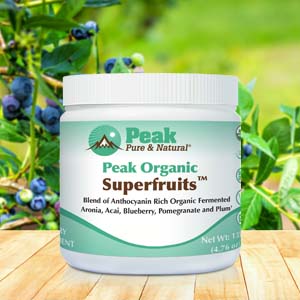Artificial sweeteners like aspartame and saccharin provide the sweetness of sugar without the calories. And if you have diabetes, you can consume these sweeteners without spiking your blood sugar.
Sounds perfect, right?
Not exactly.
What good is losing weight and looking trim if your memories are slowly being erased?
Take a look at the newest research on artificial sweeteners and what they do to your cognitive abilities…
Artificial sweeteners steal your brain power
A large Brazilian study has found that the most common artificial sweeteners — those found in diet sodas, flavored waters, and processed snacks — are strongly associated with a decline in memory and loss of cognitive skills.
The study looked at seven low- and no-calorie sweeteners. You’ve probably seen some of these on your soda, chewing gum, or snack labels:
- aspartame
- saccharine
- acesulfame-K
- erythritol
- xylitol
- sorbitol
- tagatose
The study followed 12,772 adults for an average of eight years. At the start, participants completed questionnaires about what they ate and drank during the past year. They were then broken up into three groups based on the total amount of artificial sweeteners they’d consumed.
All participants were given cognitive tests at the start, middle, and end of the study to track memory, language, and thinking skills over time. These tests looked at things like verbal fluency, working memory, word recall, and processing speed.
People who consumed the highest amount of these sweeteners showed a 62 percent faster decline in overall thinking and memory skills than those who consumed the lowest amount — the equivalent of 1.6 years of extra brain aging.
Just to give you some perspective, for aspartame, a common sweetener, the highest amount was equal to drinking just one can of soda per day!
Other findings:
- People under the age of 60 who consumed the highest amounts of sweeteners showed faster declines in verbal fluency and overall cognition.
- The link to faster cognitive decline was stronger in participants with diabetes than in those without diabetes.
Alternatives to artificial sweeteners
This isn’t the first time the alarm has sounded about the impact of artificial sweeteners on cognition.
In 2017, a study at Boston University found that people who drank diet soda daily were almost three times as likely to develop stroke and dementia when compared to those who did not.
In case you’re not already convinced to give up those diet sodas, here are some other scary things that artificial sweeteners can do to you:
Fortunately, there are healthier alternatives to sweetening your food and drink. And if you don’t overdo it, there’s no need to worry about the calories.
- Honey – known for its antioxidant and antibacterial properties
- Maple syrup – contains manganese and potassium, and has a lower glycemic index
- Coconut sugar – made from the sap of the coconut palm
- Stevia – a plant-based sweetener with no calories and no effect on blood sugar
- Monk fruit – a natural sweetener with a sweetness level 300 times higher than sugar, and no calories or carbohydrates
So if you’re looking to stay healthy by losing those extra pounds, make sure you don’t lose your mind power, too.
Sources:
Sweeteners in diet drinks may steal years from the brain — Science Daily
Association Between Consumption of Low- and No-Calorie Artificial Sweeteners and Cognitive Decline — Neurology
Read full article here




